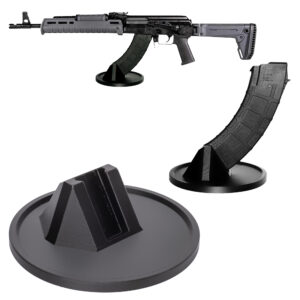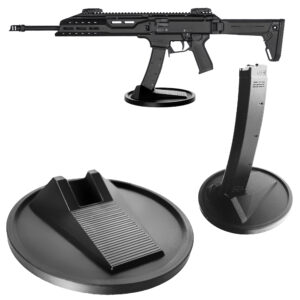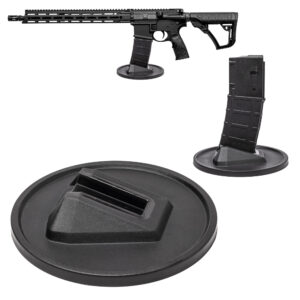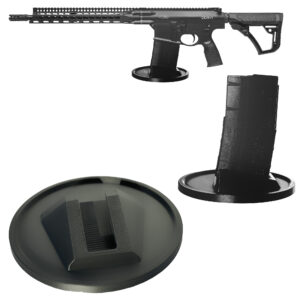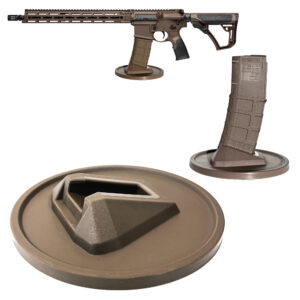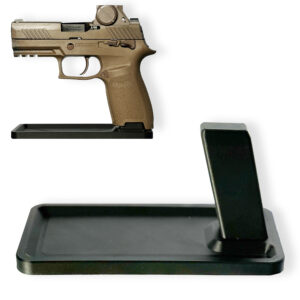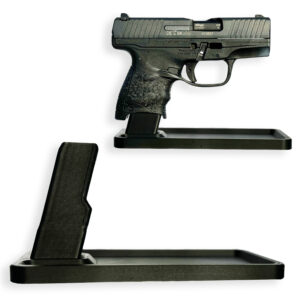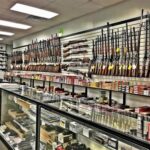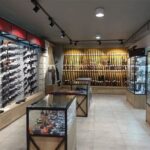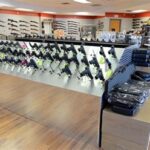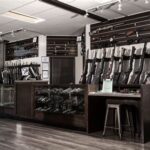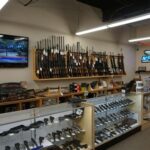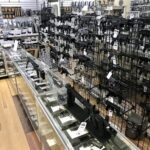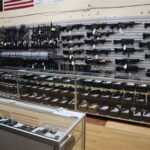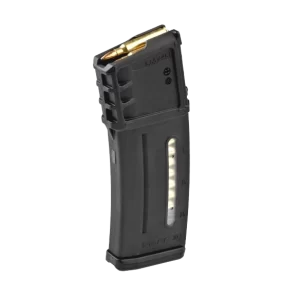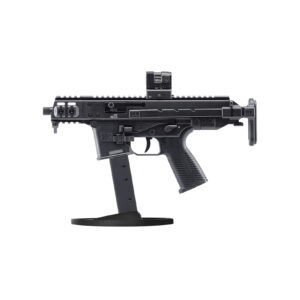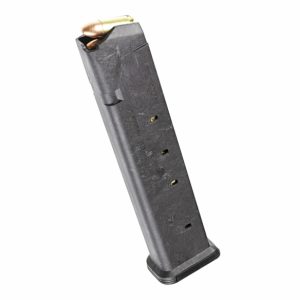The firearms industry has long been a cornerstone of the American economy, with gun dealers, manufacturers, and shops playing a vital role in its thriving business. This subtopic aims to provide an introduction to this dynamic world, shedding light on the various aspects that contribute to its success. Gun dealers form an essential link between manufacturers and consumers, acting as intermediaries who facilitate the buying and selling of firearms.
These establishments often offer a wide range of products, including handguns, rifles, shotguns, and ammunition. They are responsible for ensuring compliance with local and federal laws regarding background checks and age restrictions. Manufacturers play a crucial role in the development and production of firearms. From small-scale artisanal workshops to large-scale industrial factories, these entities employ skilled craftsmen and utilize cutting-edge technology to create high-quality firearms that meet industry standards.
Gun shops serve as retail outlets where customers can browse through different models, receive expert advice from knowledgeable staff members, and make purchases. These establishments often cater to diverse customer needs by offering accessories such as holsters, scopes, cleaning kits, and other firearm-related products. Understanding the intricacies of this multifaceted industry is essential for anyone interested in exploring its economic impact or delving into related policy discussions.
Exploring The Gun Dealer Industry: How Entrepreneurs Capitalize On America’s Passion For Firearms
The gun dealer industry in the United States is a thriving business that has capitalized on Americans’ deep-rooted passion for firearms. Entrepreneurs within this industry have recognized the demand and successfully tapped into a market that caters to a diverse range of customers, from avid hunters and sport shooters to collectors and self-defense enthusiasts. These savvy entrepreneurs understand that their success lies in offering a wide variety of firearms, accessories, and related services.
They meticulously research market trends, analyzing consumer preferences and demands to stock their shelves with popular models while also catering to niche interests. By doing so, gun dealers can attract an extensive customer base and build lasting relationships. Moreover, successful gun dealers go beyond simply selling firearms; they provide expert advice, training programs, and maintenance services to ensure customer satisfaction and safety.
Behind The Scenes: Unveiling The Manufacturing Processes That Fuel The Firearms Industry
The firearms industry is a complex and intricate web of manufacturers, dealers, and shops that work tirelessly to produce and distribute weapons. Understanding the manufacturing processes behind this thriving business provides insight into how guns are made and highlights the industry’s commitment to quality and safety. The process begins with meticulous design and engineering, where skilled professionals craft blueprints for each firearm.
These designs undergo rigorous testing to ensure functionality, accuracy, and compliance with regulations. Once approved, the manufacturing phase commences. Firearm production involves a combination of automated machinery and skilled craftsmanship. Specialized machines forge barrels, frames, slides, and other components from high-grade metals. These parts are then meticulously assembled by trained gunsmiths who carefully fit them together. Each firearm undergoes rigorous quality control inspections at multiple stages to guarantee precision.
Additionally, many manufacturers employ advanced technologies such as computer numerical control (CNC) machines for higher production volumes while maintaining consistent quality standards. Safety is paramount throughout every step of manufacturing.
From Local Stores To Online Platforms: The Evolving Landscape Of Gun Shops In A Digital Age
From local stores to online platforms: the evolving landscape of gun shops in a digital age. The firearms industry, once dominated by brick-and-mortar stores, is undergoing a significant transformation with the rise of e-commerce. Gun dealers, manufacturers, and shops are embracing online platforms to tap into a broader customer base and increase convenience for buyers. With the advent of virtual storefronts and dedicated websites, enthusiasts can now browse extensive catalogues, compare prices, and make purchases from the comfort of their homes.
This shift towards digital platforms has not only expanded accessibility but also brought forth new challenges in terms of regulations and safety measures.
Beyond Buying And Selling: The Fascinating World Of Gun Ownership, Gun Shows, And Gunsmithing
Gun ownership extends far beyond the simple act of purchasing and selling firearms. It encompasses a captivating world that delves into gun shows and gunsmithing, offering enthusiasts a unique experience. Gun ownership allows individuals to exercise their Second Amendment rights while immersing themselves in an array of activities. Gun shows serve as vibrant marketplaces where collectors, hobbyists, and professionals gather to showcase their vast collections, exchange knowledge, and explore the latest innovations in firearms technology.
These exhibitions offer a glimpse into the rich history of guns through displays of antique firearms or rare pieces that have shaped warfare or hunting traditions. Within the realm of gun ownership lies the artistry of gunsmithing. This ancient craft involves meticulously crafting, modifying, repairing, or restoring firearms to meet individual preferences or enhance performance. Gunsmiths skillfully blend traditional techniques with modern advancements to create personalized masterpieces tailored to each customer’s needs.
Furthermore, gun ownership fosters a sense of community among enthusiasts who share a passion for firearms. Through clubs and associations dedicated to shooting sports or historical reenactments, individuals can connect with like-minded people who appreciate the artistry behind these powerful tools.
The Economic Impact Of Gun Dealers And Manufacturers: Driving Job Creation And Revenue Generation
The economic impact of gun dealers and manufacturers is vast, as they play a significant role in driving job creation and revenue generation. These entities contribute to the overall growth of the firearms industry, which has become a thriving sector in many countries worldwide. Gun dealers and manufacturers directly employ thousands of individuals across various positions, from sales representatives and customer service personnel to skilled workers involved in firearm production.
These jobs provide stable employment opportunities for individuals with diverse skill sets, ranging from manufacturing expertise to marketing and sales proficiency. Moreover, these businesses often have multiplier effects on the local economy by supporting related industries such as transportation, security services, advertising agencies, and more. Beyond direct employment, gun dealers and manufacturers also generate substantial revenue through their operations. The sale of firearms contributes to tax revenues for both federal and local governments through excise taxes on firearms and ammunition sales.
These funds are then allocated towards public services such as education, infrastructure development, healthcare systems, law enforcement agencies, and social programs. Furthermore, the economic impact extends beyond immediate financial gains. Gun dealerships often attract customers from surrounding areas who may spend additional money on related purchases such as accessories or shooting range memberships. Additionally, firearms enthusiasts frequently travel long distances to visit specialized gun shops or participate in shooting competitions or training programs.
This influx of visitors can positively impact local hospitality industries like hotels, restaurants, and tourism.
The Role Of Gun Shops In Promoting Responsible Firearm Ownership And Safety Education
The role of gun shops in promoting responsible firearm ownership and safety education is a crucial aspect of the firearms industry. Gun shops serve as more than just retail outlets; they often act as important hubs for information, training, and guidance for individuals seeking to exercise their Second Amendment rights.
Related



